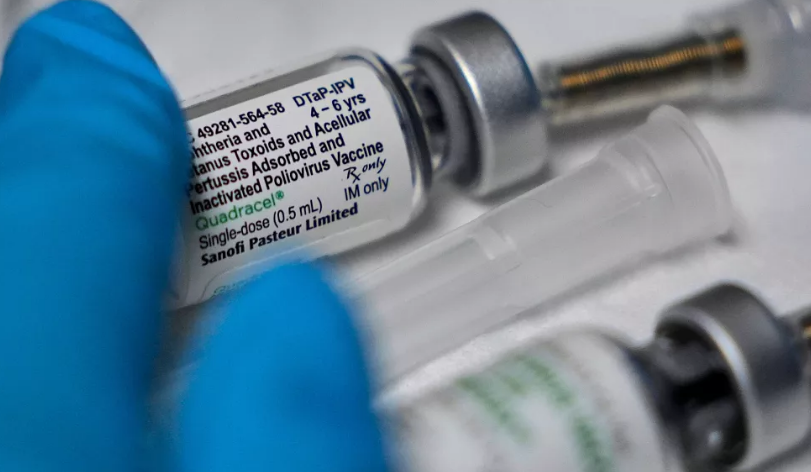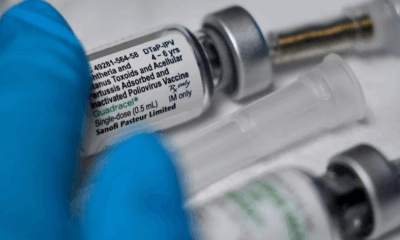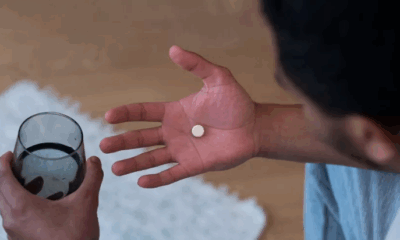Health
European Nations and Non-Profits Pledge $700 Million to WHO for Global Health Initiatives
Health
Papua New Guinea Launches Emergency Polio Response After New Cases Detected

Health authorities in Papua New Guinea have launched an urgent national vaccination campaign following the detection of two polio cases in children, marking the country’s first confirmed outbreak of the virus since 2018.
The Ministry of Health confirmed this week that poliovirus was found in two otherwise healthy children during routine screenings. Subsequent testing of sewage samples in Lae, the country’s second-largest city, verified that the virus is circulating in the community.
Health Minister Elias Kapavore described the situation as “serious but manageable” and urged swift action. “We’ve dealt with this before and know what works,” he said in a public statement, referring to a previous outbreak in 2018 that resulted in 26 cases of paralysis.
Although Papua New Guinea was declared polio-free in 2000, the recent cases underscore the country’s vulnerability due to persistently low vaccination rates among children. Polio, a highly contagious viral disease, primarily affects children under five and can lead to irreversible paralysis or death in severe cases. The disease has been largely eradicated globally, with only a few endemic regions remaining, such as Afghanistan and Pakistan.
The United Nations Children’s Fund (UNICEF) is working closely with the government to support the emergency vaccination drive. “While the focus right now is on stopping this outbreak, we must take this opportunity to boost routine immunisation to 90 per cent and protect children long-term,” said Dr Veera Mendonca, UNICEF’s representative in Papua New Guinea.
Mendonca emphasised that a long-term strategy to raise routine immunisation coverage is essential to prevent future outbreaks. UNICEF is also assisting in disease surveillance and public education efforts to raise awareness of the risks posed by polio and the importance of vaccination.
The outbreak response will target communities across the country, with particular focus on areas with the lowest immunisation coverage. Health officials are urging parents to ensure their children receive the polio vaccine, which remains the only effective way to prevent infection.
With a population of nearly 12 million and significant logistical challenges in remote areas, ensuring high vaccination coverage will be a complex task. However, authorities remain confident in their ability to contain the outbreak with coordinated action and international support.
Health
Healthy Diet May Delay Onset of Menstruation, Study Finds

A healthy diet may help delay the onset of menstruation in young girls, potentially reducing their risk of several health issues later in life, according to new research published in the journal Human Reproduction.
The study, conducted by researchers at the Fred Hutchinson Cancer Center in the U.S., followed over 7,500 girls between the ages of 9 and 14 to explore the link between dietary habits and the timing of their first menstrual periods. Girls who adhered to the healthiest diets were found to be 16% less likely to experience early menstruation compared to those with the poorest dietary habits.
In contrast, girls who consumed the most inflammatory foods — such as processed meats, sugary drinks, and refined carbohydrates — were 15% more likely to begin menstruating at an earlier age. These results were independent of body size, reinforcing the impact of diet quality regardless of a child’s weight or height.
“These findings demonstrate the importance of a healthy diet regardless of body size,” said Dr. Holly Harris, lead author of the study and associate professor at Fred Hutchinson Cancer Center. “This is particularly relevant as early menstruation has been associated with long-term health risks including obesity, type 2 diabetes, cardiovascular disease, and breast cancer.”
Typically, girls begin puberty between the ages of 8 and 13, with menstruation occurring roughly two years after breast development. However, a trend toward earlier onset of puberty has raised concerns among health professionals, especially given its links to chronic illnesses in adulthood.
While the study highlights a possible role for diet in influencing menstrual timing, some experts have cautioned against drawing firm conclusions. Dr. Imogen Roger, a research fellow at Brighton and Sussex Medical School, noted that the data may reflect “reverse causation” — suggesting that the timing of puberty itself might influence dietary choices, rather than the reverse.
“Diet was assessed close to the time of menarche for many of the girls,” Roger told Euronews Health. “We know that diet quality can decline during adolescence, so the association may not be entirely one-way.”
Nonetheless, researchers agree that ensuring children have access to nutritious foods — particularly during the crucial developmental window around puberty — is vital. Harris emphasized the importance of school meal programmes grounded in evidence-based nutrition.
“This research reinforces the need for equitable access to healthy meals for all children and adolescents, especially through school-based initiatives,” she said.
Health
Europe Pays Less for Medicines Than the U.S., but Prices Still Vary Widely by Country
-

 Business12 months ago
Business12 months agoSaudi Arabia’s Model for Sustainable Aviation Practices
-

 Business12 months ago
Business12 months agoRecent Developments in Small Business Taxes
-

 Politics12 months ago
Politics12 months agoWho was Ebrahim Raisi and his status in Iranian Politics?
-

 Business10 months ago
Business10 months agoCarrectly: Revolutionizing Car Care in Chicago
-

 Business11 months ago
Business11 months agoSaudi Arabia: Foreign Direct Investment Rises by 5.6% in Q1
-

 Technology12 months ago
Technology12 months agoComparing Apple Vision Pro and Meta Quest 3
-

 Politics12 months ago
Politics12 months agoIndonesia and Malaysia Call for Israel’s Compliance with ICJ Ruling on Gaza Offensive
-

 Sports9 months ago
Sports9 months agoKeely Hodgkinson Wins Britain’s First Athletics Gold at Paris Olympics in 800m





























